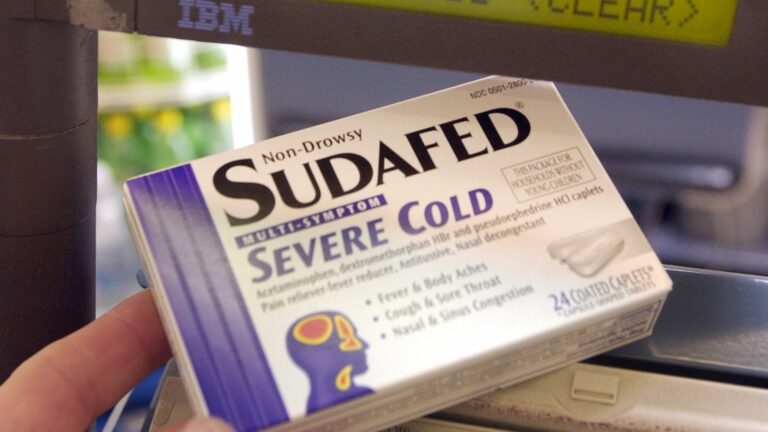FDA Panel Finds Popular Cold and Cough Meds Ineffective for Congestion Relief
In a recent decision, a US Food and Drug Administration (FDA) advisory panel has cast doubt on the effectiveness of well-known cold and cough medications like Sudafed in providing relief from congestion. The focal point of their skepticism is phenylephrine, a key ingredient found in many over-the-counter cough and cold medicines when taken orally.
This development occurred as the FDA gathered external experts to reevaluate the efficacy of phenylephrine, prompted by emerging evidence suggesting that when taken orally, only a minimal amount of the drug reaches the nasal passages to alleviate congestion. The panel came to a consensus that further trials were unnecessary to establish the ineffectiveness of the drug. Consequently, this decision may prompt pharmaceutical companies to withdraw their oral medications containing phenylephrine from store shelves or inspire the development of new formulations.
Jennifer Schwartzott, a member of the FDA panel, expressed her stance on the matter: “The patient community requires and deserves medications that treat their symptoms safely and effectively, and I don’t believe that this medication does that.”
Phenylephrine, which can be found in popular cold medicines such as Sudafed, has been a common choice for congestion relief since the early 2000s. It replaced pseudoephedrine, the decongestant used in Sudafed, which was moved behind the pharmacy counter in 2006 to combat its misuse in methamphetamine production.
The panel’s concerns do not extend to the effectiveness of pseudoephedrine products available behind the counter or phenylephrine-based nasal sprays and drops. Consumers may need to switch to these alternatives if oral phenylephrine products are removed from the market.
The Consumer Healthcare Products Association, representing drug manufacturers, has reassured the public, stating that “the regulations for phenylephrine remain unchanged, and there is no change in the availability of products containing phenylephrine on store shelves.” They also noted that the panel’s vote was a non-binding suggestion for the FDA to consider, emphasizing that these medicines are still recognized as safe and effective by the FDA.
While the FDA typically follows the recommendations of its expert panel, it is not obligated to do so. The agency has yet to announce when a formal decision will be reached regarding phenylephrine’s over-the-counter status as “generally recognized as safe and effective.” This development could potentially reshape the $2.2 billion oral decongestant market, given phenylephrine’s prevalence in many of its products.

